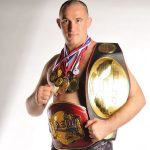Date of Birth: December 11, 1918
Zodiac Sign: Sagittarius
Date of Death: August 3, 2008
Biography
Aleksandr Solzhenitsyn was a Russian novelist, historian, and outspoken critic of the Soviet Union, particularly known for his works that delve into the harsh realities of Soviet labor camps and the oppression experienced under the regime. Born on December 11, 1918, in Kislovodsk, Russia, Solzhenitsyn’s early life was marked by the loss of his father before his birth and being raised by his mother under difficult circumstances. Solzhenitsyn attended Rostov State University, graduating in 1941 with a degree in physics and mathematics. His academic pursuits were interrupted by World War II, during which he served as a commander in the Soviet Army. His outspoken letters criticizing Stalin led to his arrest in 1945 and subsequent eight-year sentence in a labor camp, followed by internal exile. His experience in the labor camps deeply influenced his writing, most notably in “One Day in the Life of Ivan Denisovich,” published in 1962 with the approval of Nikita Khrushchev. This groundbreaking work brought international attention to the brutal conditions of the Soviet gulags. Despite the success of this and other works, such as “The Gulag Archipelago,” Solzhenitsyn faced increasing censorship and was eventually exiled from the Soviet Union in 1974. Solzhenitsyn spent 20 years in exile, primarily in the United States, where he continued to write and critique both Soviet and Western societies. He returned to Russia in 1994 after the dissolution of the Soviet Union, continuing his literary and public endeavors until his death on August 3, 2008.
5 Interesting Facts about Aleksandr Solzhenitsyn
1. Solzhenitsyn won the Nobel Prize in Literature in 1970 but could not collect it in person due to fears he would not be allowed back into the Soviet Union.
2. He was expelled from the Soviet Writers’ Union in 1969, which effectively banned him from publishing in the Soviet Union.
3. “The Gulag Archipelago” was smuggled out of the Soviet Union and published in the West in 1973, detailing the extensive network of labor camps.
4. During his exile, Solzhenitsyn lived in Vermont, USA, where he continued to write and lecture.
5. He was twice diagnosed with cancer; the first diagnosis in 1953, while in exile, was deemed terminal, but he survived after receiving treatment.
5 Most Interesting Quotes from Aleksandr Solzhenitsyn
1. “The line separating good and evil passes not through states, nor between classes, nor between political parties either — but right through every human heart.”
2. “Own only what you can always carry with you: know languages, know countries, know people. Let your memory be your travel bag.”
3. “In the struggle with falsehood, art always did win and it always does win!”
4. “Justice is conscience, not a personal conscience but the conscience of the whole of humanity.”
5. “If only it were all so simple! If only there were evil people somewhere insidiously committing evil deeds, and it were necessary only to separate them from the rest of us and destroy them.”
Highest Net Worth Achieved
At the peak of his career, Aleksandr Solzhenitsyn’s net worth was estimated to be in the range of $20 million, primarily due to the international success of his books and royalties.
Children
Aleksandr Solzhenitsyn had three sons with his second wife, Natalia Dmitrievna Svetlova: 1. Yermolai Solzhenitsyn, a musician and conductor. 2. Ignat Solzhenitsyn, a conductor, pianist, and composer. 3. Stepan Solzhenitsyn, a businessman and consultant.
Relevant Links
2. [The New York Times Obituary](https://www.nytimes.com/2008/08/04/books/04solzhenitsyn.html
3. [Biography.com – Aleksandr Solzhenitsyn](https://www.biography.com/writer/aleksandr-solzhenitsyn
4. [The Guardian – Aleksandr Solzhenitsyn](https://www.theguardian.com/books/aleksandr-solzhenitsyn
